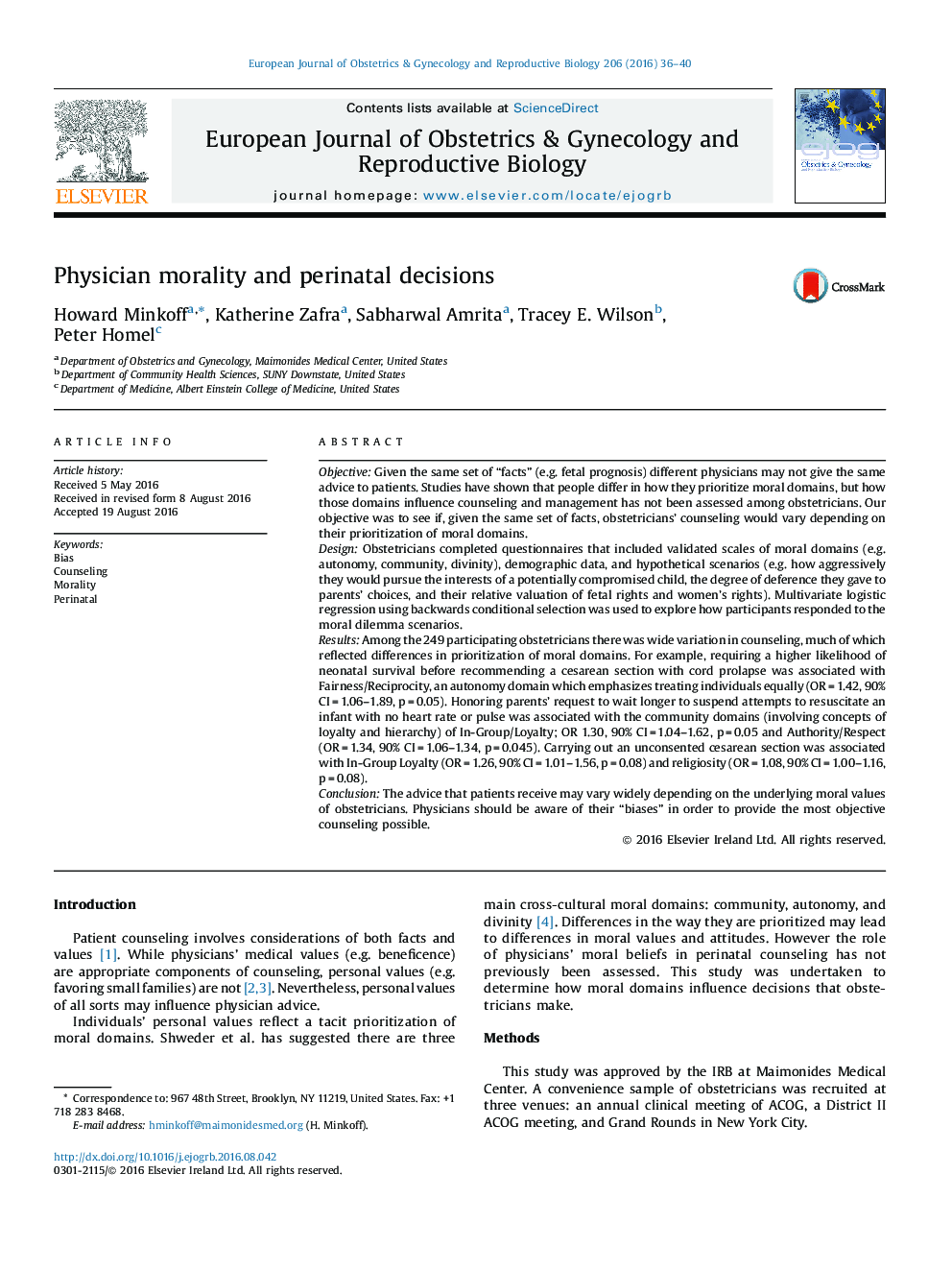| کد مقاله | کد نشریه | سال انتشار | مقاله انگلیسی | نسخه تمام متن |
|---|---|---|---|---|
| 6172400 | 1599775 | 2016 | 5 صفحه PDF | دانلود رایگان |
ObjectiveGiven the same set of “facts” (e.g. fetal prognosis) different physicians may not give the same advice to patients. Studies have shown that people differ in how they prioritize moral domains, but how those domains influence counseling and management has not been assessed among obstetricians. Our objective was to see if, given the same set of facts, obstetricians' counseling would vary depending on their prioritization of moral domains.DesignObstetricians completed questionnaires that included validated scales of moral domains (e.g. autonomy, community, divinity), demographic data, and hypothetical scenarios (e.g. how aggressively they would pursue the interests of a potentially compromised child, the degree of deference they gave to parents' choices, and their relative valuation of fetal rights and women's rights). Multivariate logistic regression using backwards conditional selection was used to explore how participants responded to the moral dilemma scenarios.ResultsAmong the 249 participating obstetricians there was wide variation in counseling, much of which reflected differences in prioritization of moral domains. For example, requiring a higher likelihood of neonatal survival before recommending a cesarean section with cord prolapse was associated with Fairness/Reciprocity, an autonomy domain which emphasizes treating individuals equally (OR = 1.42, 90% CI = 1.06-1.89, p = 0.05). Honoring parents' request to wait longer to suspend attempts to resuscitate an infant with no heart rate or pulse was associated with the community domains (involving concepts of loyalty and hierarchy) of In-Group/Loyalty; OR 1.30, 90% CI = 1.04-1.62, p = 0.05 and Authority/Respect (OR = 1.34, 90% CI = 1.06-1.34, p = 0.045). Carrying out an unconsented cesarean section was associated with In-Group Loyalty (OR = 1.26, 90% CI = 1.01-1.56, p = 0.08) and religiosity (OR = 1.08, 90% CI = 1.00-1.16, p = 0.08).ConclusionThe advice that patients receive may vary widely depending on the underlying moral values of obstetricians. Physicians should be aware of their “biases” in order to provide the most objective counseling possible.
Journal: European Journal of Obstetrics & Gynecology and Reproductive Biology - Volume 206, November 2016, Pages 36-40
